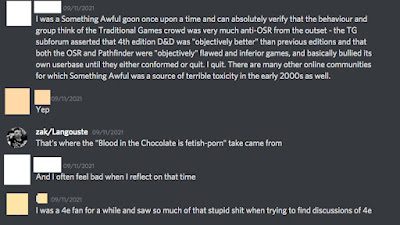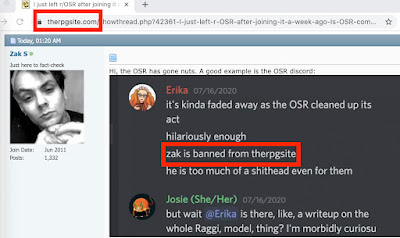There is a poll at the end of this entry, please comment if you're interested.
Three Years of Lawsuits
Three years in. One thing I do is depositions, they work like this:
Wake up before dawn, shave, put on the jacket and button-down shirt and shorts, like a day at an office, fold out one of those changing screens to block out a covid-era apartment full of unwashed dishes, turn on Zoom, work the camera so only the screen is in the frame behind you, and wait.
My lawyer pops up on the screen. Theoretically, someone in their position could ask “Are you ok? Do you have any questions?” but there aren’t ever any. All of this is easy, there are never any surprises.
The various opposition lawyers—no matter who they are or who hired them—sweat a lot—as if not used to talking to strangers. Some, despite being very well-paid, use those digital backgrounds, like a wall of law books, overlapping their bald heads when they move too fast. Some come in at angles, as if turning on their camera for the first time.
I try hard not to be hard on them: their clients have given them nothing to work with. The evidence and witnesses prove I’m telling the truth, so they have to work another angle. They are desperate to find me lying about anything.
Most of what happens in these legal cases does not go like in the movies, but these parts always do:
“How many people read that blog entry?”
“I don’t know.”
“That’s not what you said in March! You said there were metrics and you gave a figure, Mr Smith!”
(You can see them leaning in here, riding hard.)
“Yeah that was spring, this is like winter, I haven’t looked at it since. You could just look at what I said then?”
They pause.
I’ve seen these kind of lawyers’ notes, they are lists of groups of questions. You can see, in the zoom window, the lawyer re-orienting, making a shoulder movement to cross out what’s become a cul-de-sac of questions, scanning down for some questions not made irrelevant by this totally normal answer.
They have nothing. They need to have something. So, often surprisingly early, they get in to The Goon Questions.
Something Awful Slash Tee Gee
If you already know all about Something Awful /tg is and its shitty impact on tabletop games you can skip to the last section. If not:
“Goon” is what people who hang out on a very old website called Something Awful call themselves. It pre-dates-, spawned-, and is almost-indistinguishable from-, 4chan. It was founded by a now-dead disgraced abuser and troll named Lowtax who you can google, and “Goon” means someone who was so excited to be a troll and spend time with other trolls that they paid him an annual membership fee.
In the porn world, it’s also slang meaning “endless masturbation”.
The goon forums are topically arranged, there’s one for each thing goons are interested in, so:
- video games
- presumably some other shit idk I never looked,
- and, of course, tabletop RPGs.
Since for the last two decades there have been dozens, maybe hundreds, of other places to talk about tabletop RPGs, the only reason to go there is to say trolly things that would get you tossed off any other forum. Or to hang out with other trolls.
The wildest thing about goons is they all act the same, even when not on the site, even when on private blogs or twitter, under their real names:
- Cartoon and video game avatars
- Most-online-possible vocabulary, verbal tics, topics of conversation
- Obsessively comment on whatever’s topical on twitter that day
- Almost never, even when not on the site—on twitter or on a discord--talk about anything that happened to them that wasn’t on a computer
- …except on rare occasions, and then only to frame it as a great injustice, like they went to 7-Eleven to buy Cheetos and it was a great injustice
- All this is so consistent it’s weird
The tabletop-specific troll forum was called /tg, short for “traditional games”. Since tabletop games (especially when it started) were not mostly a thing to be done online, they all developed creepily similar takes:
- They played D&D and it was a great injustice
- The solution was 4th Edition D&D because 4e was not the earlier editions that had made them cry
- Anyone who played a different edition was a “grog”—meaning they were secretly a member of the GOP no matter what they did
- So like if it turned out Bernie Sanders played old-school D&D then Bernie Sanders is a “grog” and a secret member of the Republican party
- If you look at the /tg threads from 2009 to around 2015 this is, again, so consistent it’s weird
Why did they troll so hard for 4e rather than, like the rest of the RPG industry, troll indiscriminately? My guess is just that it was the edition-wars era and that whoever ended up being so online they got to be the moderators of /tg just kicked out everyone who didn’t troll 4e-ward.
Here’s a reformed goon. I think everyone in the screencapped conversation reads this blog so if you have any questions you can ask them in the comments:
- None of the people who had spent all that time harassing anyone for playing anything besides their favorite edition of D&D admitted they were wrong
- None of the people who changed their tune apologized to their victims
- None of them did anything to help their victims
- None of the people who had positions of influence (moderators, game designers who hired people) where they did that ever suffered any consequences
- Even with their new and more catholic taste, they were all still assholes and acted the same
- Despite how much impact they've had, nobody talks about goons (in many cases, explicitly because they're afraid of being harassed).
- When someone reveals they are a goon, the reaction from everyone else in games isn't Oh wow, you're a troll and just admitted it? We can't trust anything you say please stop posting your weird accusations until you get therapy and work to undo the harm you did.
- Goons get positions of influence: goons worked on the Lancer RPG, goons moderated RPGnet, Evil Hat Productions actually actively went to Something Awful to recruit goons on the site, Chris McDowall, an OSR blogger and someone who, therefore, was a de facto victim of various goons for years--let them on the OSR discord once they decided they liked OSR games, goon Dan Olson, aka "Folding Ideas" has a popular YouTube channel and people actually watch it.
- Goon conspiracy theories are repeated on RPG twitter even by people way too snobby or "professional" to be goons, including basically everyone who participated in the harassment campaign against me
- ...and their lawyers
- There are people who keep paying lawyers hundreds of dollars hourly to then tell their junior partners, paralegals, and research assistants to go on twitter and discord and search "Zak S""Bad".
- These folks turn up goon conspiracy theories from either goons or in the mouths of useful idiots who can be relied upon to repeat goon shit uncritically.
- They then contact the people who post them, who either don't respond, admit they have no idea where they heard them, or trace them back to goons like Freyja Erlings, Kai Tave, and Nora Reed.
- The goons themselves, when contacted, either don't respond or admit they have no evidence to back these up.
- The lawyers go "Well fuck!" and figure they'll somehow catch me out by asking about them anyway, which leads to exchanges like...



























